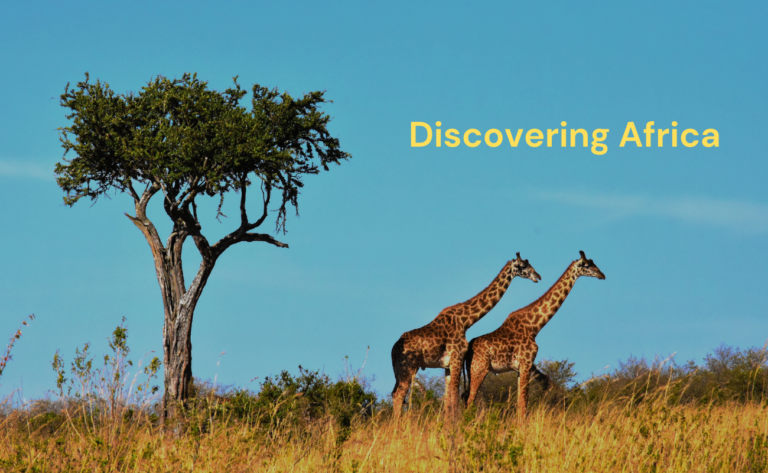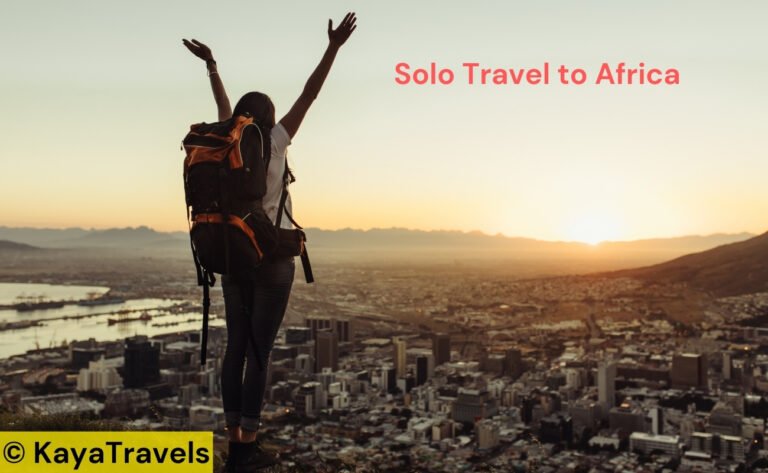Travelling to Africa in 2024 offers a world unlike any other, filled with diverse cultures, breathtaking landscapes, and unique wildlife. As a traveller, you’re invited to explore a continent rich in history and brimming with opportunities for adventure.
From the gorilla-inhabited forests of Rwanda to the sprawling savannahs of the Serengeti, Africa promises experiences that resonate long after the journey ends.
Your adventures in Africa could include trekking through dense jungles to find mountain gorillas, navigating the bustling markets that capture the essence of African culture, or witnessing the majesty of the Big Five on a safari.
Consider culinary explorations that tantalize your taste buds, or attend musical festivals that pulsate with the continent’s vibrant rhythms.
Whether you’re seeking encounters with nature unseen elsewhere or cultural exchanges that broaden your world perspective, travelling to Africa in 2024 is an invitation to create memories of a lifetime.
Each country on this vast continent offers its unique blend of attractions and is ready to welcome visitors with open arms and unforgettable experiences.
Planning Your African Journey
When planning your African journey for 2024, you must consider the optimal travel times, select suitable destinations that resonate with your interests, and understand the necessary visa requirements.
Determining the Best Time to Visit
The best time to visit Africa varies widely depending on the region and your interests. For wildlife enthusiasts, the great migration in East Africa occurs from July to October, which is ideal for a safari.
However, if you seek a quieter experience in Southern Africa, consider travelling between May and September, when it’s dry and animals congregate around water sources.
For beach holidays, December to March can be perfect as it’s warmer, but remember that it can be rainy in some areas.
Selecting Destinations and Itineraries
Choosing where to go can be overwhelming, but travel experts can help you design the perfect itinerary. South Africa’s Kruger National Park is always a hit for a wildlife safari.
For a unique water-based adventure, consider Botswana’s Okavango Delta, especially in February for birdwatching or June for wildlife viewing. Your itinerary could look something like this:
- Kruger National Park, South Africa – Big Five safari and bush walks
- Victoria Falls, Zambia/Zimbabwe – Breathtaking waterfalls and adventure sports
- Okavango Delta, Botswana – Mokoro rides and abundant wildlife
Customizing your journey with experiences you can’t get anywhere else will make your travel unforgettable.
Understanding Visa and Entry Requirements
Before you travel, you must understand visa and entry requirements, which can vary. Many African countries require visas for entry, some of which can be obtained upon arrival, while others must be arranged in advance.
By January 2024, always check the latest information on visa requirements from official sources or consult with a guide who specializes in African travel to ensure a smooth experience. Here is an essential list of what you’ll need:
- Valid passport with at least 6 months remaining before expiry
- Visa for the specific countries you’re visiting (if required)
- Travel insurance documentation
- Any required vaccinations
Embarking on your African journey is an exciting endeavour. By planning and keeping informed, you can ensure a trip that’s both thrilling and seamless.
Cultural Encounters and Historical Sites
When you journey through Africa in 2024, immerse yourself in the diverse tapestry of cultures and step back in time at ancient historical landmarks.
Exploring African Cultures and Cuisine
In Morocco, experience the rich blend of Arab, Berber, and French cultures in the bustling streets of Marrakech. Savour the flavours of tagines and couscous, spiced with saffron and cumin in traditional riads.
Head to the open-air markets, where artisans craft intricate leather goods and carpets, offering you a tangible piece of Moroccan heritage.
Visiting Historic Landmarks
Egypt’s history is as long as the Nile, the world’s longest river that flows through it. The Pyramids of Giza, standing tall near Cairo, are a testament to the country’s ancient past.
As you gaze upon these towering structures, imagine the skilled hands that built them over 4,500 years ago. Walk the same paths where pharaohs once tread, and let the stories of their mighty civilization envelop you.
Wildlife Safaris and Nature Reserves
Embark on an unforgettable African safari in notable locations like Kruger National Park and Serengeti National Park for the ultimate game-viewing experience. These reserves serve as home to an array of biodiversity, including Africa’s famed Big Five.
The Big Five and Other Wildlife
Africa’s Big Five—lions, leopards, rhinos, elephants, and buffaloes—are not just a highlight for visitors; they are critical components of the ecosystem. Serengeti National Park, for instance, is a prime spot for observing these majestic creatures in their natural habitat.
Additionally, the Ngorongoro Crater, an inactive volcanic caldera, hosts over 25,000 animals, offering one of the densest wildlife experiences.
- Lions: Often found resting in the savannas of Serengeti.
- Leopards: Kruger National Park provides opportunities to spot these elusive big cats.
- Rhinos: The endangered black rhino can be seen in sanctuaries across the continent.
- Elephants: Witness herds in the open landscapes of the Serengeti.
- Buffaloes: Large herds are a common sight in both Serengeti and Kruger.
Conservation and the Role of Nature Reserves
Nature reserves in Africa play a pivotal role in protecting the region’s wildlife and ensuring the longevity of safari experiences. Conservation efforts within these reserves help preserve species and their habitats, maintaining the natural order and supporting sustainable tourism.
- Habitat Protection: Serengeti’s wide-open spaces offer a sanctuary for wildlife to thrive.
- Anti-Poaching Measures: Initiatives in places like Kruger are vital in safeguarding rhinos and other vulnerable species.
- Education and Research: Nature reserves often serve as centres for learning and ecology studies to promote conservation.
By visiting these reserves, you’re directly contributing to conservation efforts, enabling the protection of wildlife for future generations to enjoy.
Adventure and Outdoor Activities
Travelling to Africa in 2024 offers a diverse array of outdoor activities and adventure tourism opportunities that cater to explorers of all types.
From the adrenaline-fueled rush of Victoria Falls to the serene trails of Table Mountain, your quest for the ultimate nature-infused thrill is bound to be satisfied.
Embracing Adventure Tourism
Adventures in Africa are plentiful and cater to both seasoned thrill-seekers and those new to adventure tourism. Here are some can’t-miss experiences:
- Victoria Falls: Known as ‘The Smoke That Thunders’, plunge into white-water rafting on the mighty Zambezi River or bungee jump from the bridge spanning the deep gorge below the falls.
- Table Mountain: Reach the summit of Table Mountain for breathtaking views. Trails of varying difficulty welcome hikers or take the cable car for a more relaxed ascent.
- Safari Adventures: Embark on African Adventure tours ranging from a single day to extensive 93-day expeditions, which often include safari experiences where the Big Five roam freely.
Experience unique nature encounters and create lasting memories.
Beaches, Mountains, and Rivers
The African continent boasts more than just wildlife; its natural landscapes are a playground for outdoor activities:
- Beaches: Sunbathe, surf, or dive along pristine coastlines like those near Cape Town.
- Mountains: Trek through otherworldly landscapes and reach peaks that grant expansive views of the surrounding terrain.
- Rivers: Kayak or canoe the calm waters of rivers like the Zambezi, outside of the rapids near Victoria Falls, for a different perspective of Africa’s nature.
Italicize personal experiences for a touch of authenticity and to provide actionable insights. A trip to Africa is an opportunity to engage actively with the environment while respecting its beauty and conserving its resources.
Travel Tips and Resources
When planning your African adventure, having the correct information can turn a good trip into the trip of a lifetime. Let’s explore the essentials and share actionable insights to ensure your journey is as smooth and exciting as possible.
Solo Travel and Group Tours
Travelling solo can be an exhilarating experience, giving you the freedom to explore at your own pace. However, group tours guided by a local tour operator can enhance your safari tour with expert knowledge and safety in numbers.
- Solo Travel:
- Freedom: Craft your itinerary and move at your rhythm.
- Self-discovery: Embrace unique encounters that change your perspective.
- Group Tours:
- Safety: Benefit from the security of a crowd, especially on wildlife safaris.
- Knowledge: Expert guides mean you won’t miss the hidden gems.
For a balanced experience, mix solo explorations with planned tours, such as joining a Luxury Tented Camp safari for a few days before venturing out on your own.
Accommodation and Transportation Options
Comfort and convenience are essential when it comes to accommodation and transportation in Africa. Whether you prefer the luxury of a tented camp or the authenticity of a backpacker’s hostel, your choice sets the tone for your stay.
- Accommodation:
- Luxury: Immerse yourself in comfort with luxury tented camps or high-end lodges.
- Budget: Hostels and guesthouses offer affordability and local charm.
- Transportation:
- On the Ground: Rely on local buses and private taxis; remember to negotiate fares.
- Air Travel: Domestic flights can save time, especially in larger countries.
Always book with reputable providers and confirm reservations in advance. Travel can be unpredictable, but your attention to detail will pay dividends in experience and peace of mind.






